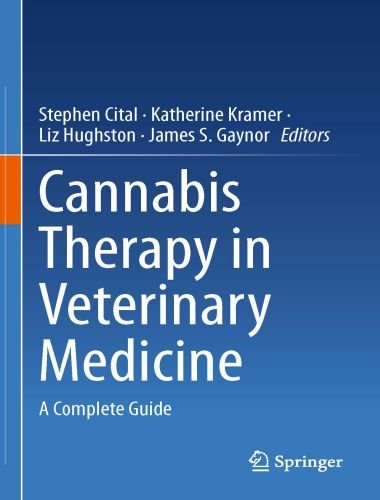Cannabis Therapy in Veterinary Medicine 1st Edition
by

This book provides in-depth information on the applications of cannabis products as a legitimate medicine in treating a variety of diseases and disorders in domestic animals. Pharmacology and toxicology of cannabinoids and their effects on the endocannabinoid system, which is involved in the regulation of diverse physiological and cognitive processes, are discussed in detail. Furthermore, the book reviews development and testing of cannabis based medical products and introduces the nutritional components of cannabis plants.
Cannabis as a therapeutic in veterinary medicine is gaining interest among owners and practitioners. Numerous studies have been completed or are currently underway that analyze the potential of clinical application of cannabinoid and terpenoid molecules. In this book the authors take a comprehensive look at previous studies in animal and human models and discuss translational applications based on these scientific data.
This seminal text serves as a go-to resource for veterinary practitioners on cannabinoid therapy. It will also serve as a foundation for clinicians and researchers interested in this emerging field of veterinary medicine.
This text was written as a guide for veterinary practitioners interested in the use of phyto cannabinoids as a therapy for companion animals. The pace at which research is being published on this topic and amid regulatory overhauls worldwide made the publication of this text critical and timely to practice veterinary medicine safely as it pertains to the therapeutic use of these compounds given client interest and the surmounting scientific evidence for their utility. Veterinary Medicine 11th Edition
Due to the speed at which regulatory changes are occurring in regard to cannabis (hemp and marijuana) and fear of publishing out of date material, this text focuses on the scientific and clinical aspects of cannabinoids in predominately dogs, cats, and horses. The authors of this text wrote their chapters to offer what evidence exists on their respective area of focus to help you make a more informed clinical decision. As with many things in veterinary medicine, we must be prepared to extrapolate information from other species, preclinical studies, and anecdote combined with our own clinical judgment to best care for our patients.
Direct Link For Paid Membership: –

4.5